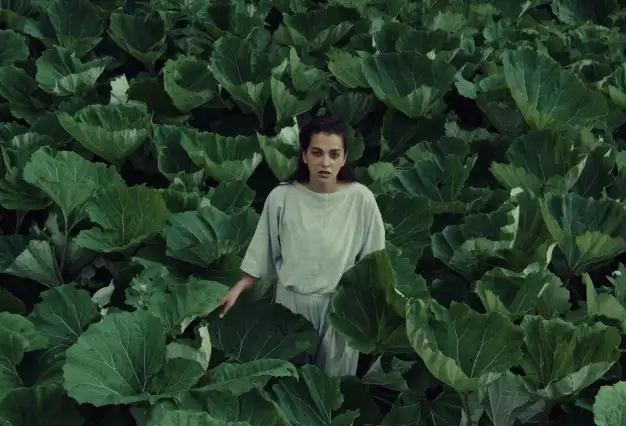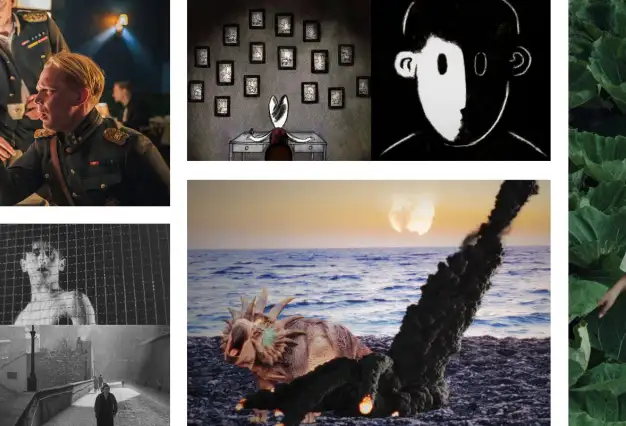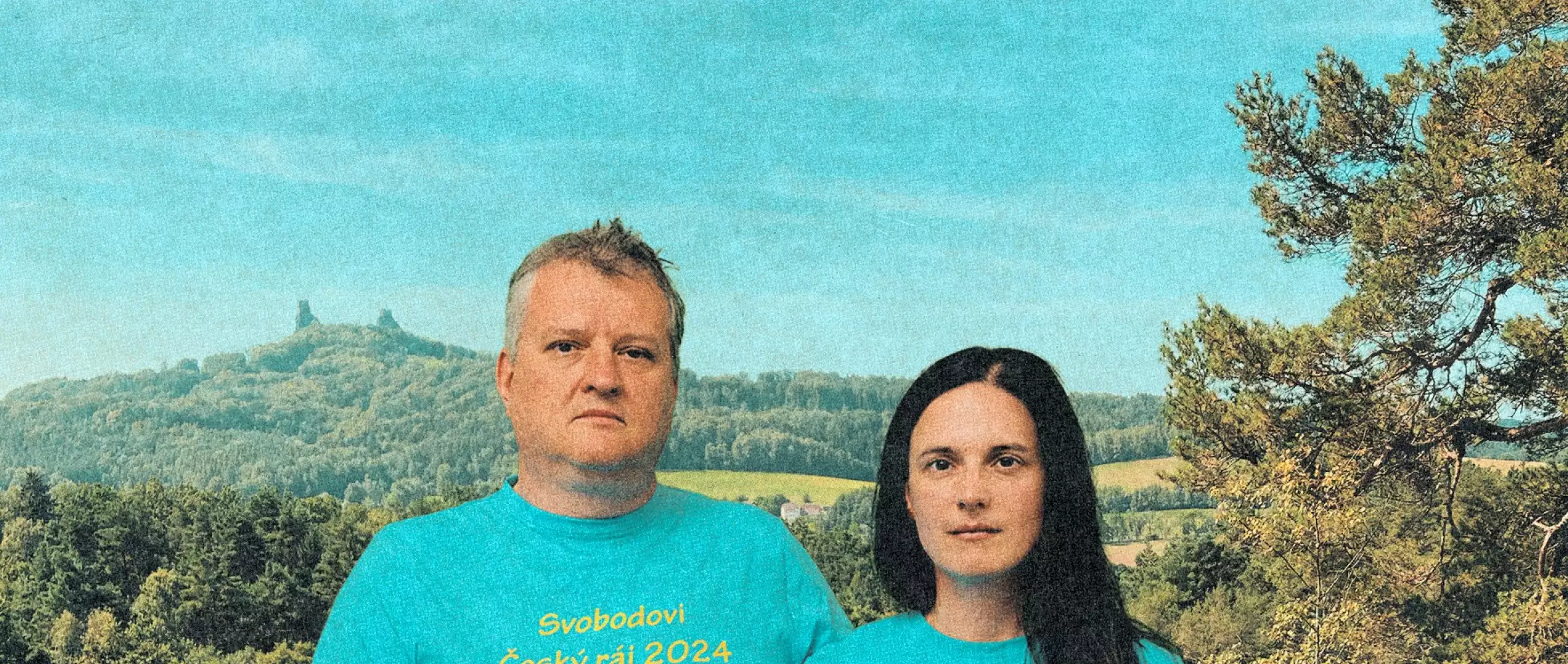
19 August 2024
Czech Film Springboard 2024 – Part two: Strippers, prophets, and family feuds
Czech Film Springboard 2024 – Part two: Strippers, prophets, and family feuds

The 2024 edition of Czech Film Springboard continues its tradition of highlighting emerging Czech cinema, featuring projects that explore spirituality in the digital era, masculine identity, and family dynamics with a touch of absurdity. This year’s selection includes presentations from seasoned filmmakers and emerging talents alike. Ever since its launch in 2016, the initiative, a collaboration between the Czech Film Fund’s international division, the Czech Film Center, and the Finále Plzeň film festival, has provided a platform for filmmakers to present their works to a diverse group of international industry professionals, gaining essential feedback and forging valuable connections.
by Martin Kudláč for CZECH FILM / Fall 2024
The three projects highlighted here delve into spirituality in the digital age, masculine identity, and family dynamics with a touch of light absurdity. Among the selected filmmakers are two seasoned directors and one emerging talent. Newcomer Terézia Halamová is set to unveil her first feature-length film, a road movie that explores themes of masculinity and identity. Jan Foukal, a returning participant, follows up a romance with a project in the road movie genre. And emerging talent Adam Koloman Rybanský builds on the momentum of his 2022 debut, Somewhere Over the Chemtrails, channeling it into his highly anticipated sophomore feature.
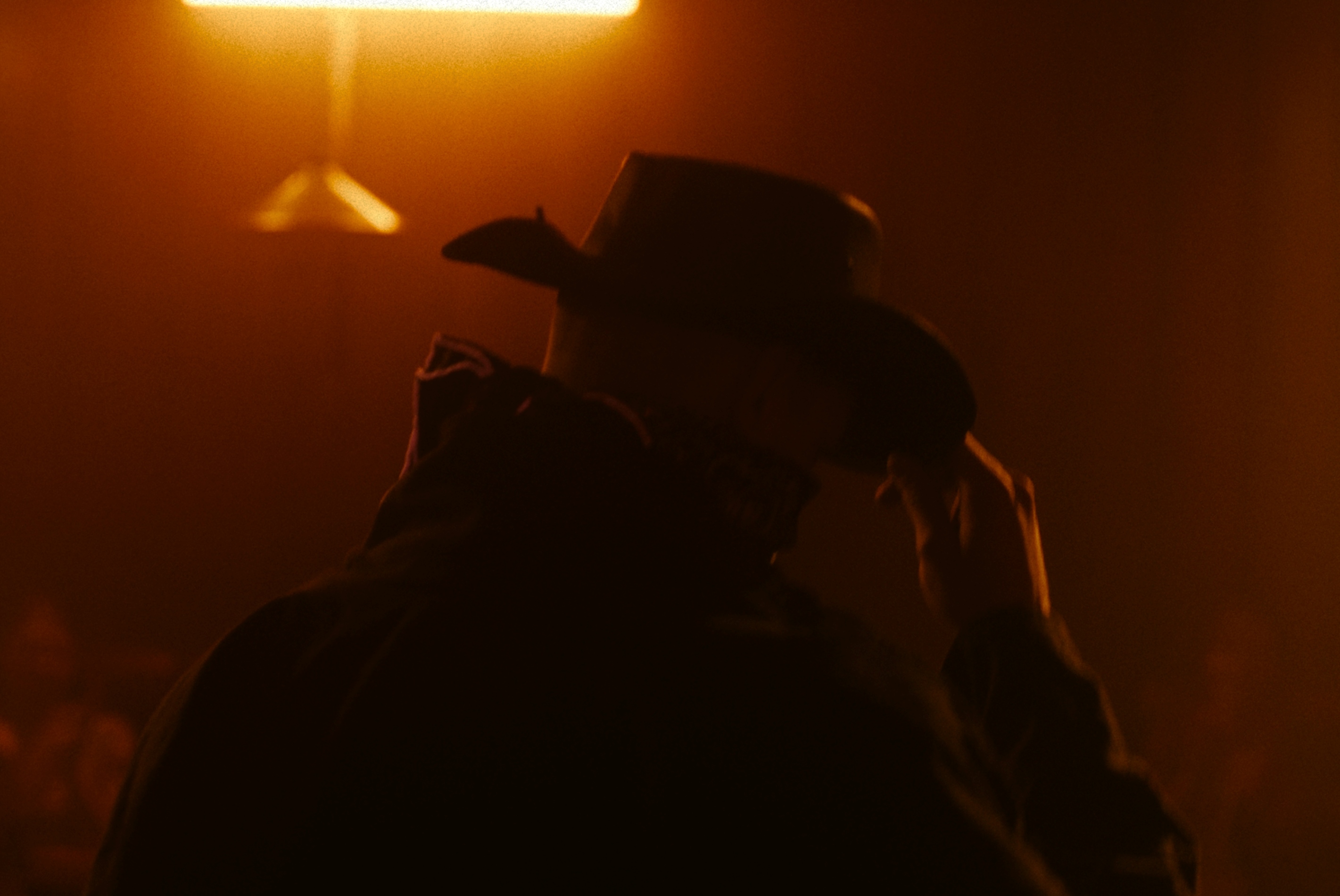
Masculinity exposed
Slovak-born FAMU graduate director Terézia Halamová is preparing to debut her feature-length film, The Hour Between Dog and Wolf. A road movie set in the world of male strippers, the project explores themes of identity, loneliness, and the quest for self-worth. Halamová’s body of work includes several short films that delve into growing up and intimacy. Notably, her 2020 short film Sing for Us received the New Europe Talent Award, Best Cinematography at the Zubroffka Festival, and the Jury Award at the International Kinoproba Festival.
The Hour Between Dog and Wolf, selected for the KVIFF Talent 2022 initiative, promises to feature the director’s recurring motifs while offering a fresh perspective on masculinity from a female viewpoint. The film aims to spark discussions on contemporary forms of masculinity, evolving gender roles, and the role of men in society.
The film follows 25-year-old Rudo, a stripper who flees his mundane life to join a tour of male strippers across Central and Eastern Europe. Their journey, marked by nightclubs, Christian kitsch, sweat, drugs, and blood, juxtaposes nightly performances with the stark reality of small-town life. Rudo, driven by a desire for constant admiration and love, views life on the road as a liberation from responsibility, offering him the chance to reinvent himself. However, as the tour progresses, the disintegration of his idealized world becomes apparent, exacerbated by his drug use and impulsive decisions.
“Terézia’s work captivates with its sensitivity and originality. Her short films showcase her lyrical talent and authentic characters,” said producer Natália Pavlove of Other Stories, who produced the award-winning short film Vinland and the Czech-Lebanese-Qatar coproduction Sea Salt. The producer added, “It’s intriguing that her debut feature focuses on male strippers, yet she portrays them with the same sensitivity, addressing themes of vulnerability, loneliness, and vanity within a typically hypermasculine environment.”
Principal photography for The Hour Between Dog and Wolf is preliminarily scheduled from August to September 2025, with a world premiere anticipated in May 2026. Pavlove’s Czech outfit, Other Stories, is joined by Slovak coproducer guča films, and the producer is in negotiation with a potential French partner. However, she is still seeking additional partners from Poland, as the road trip depicted in the film will traverse Slovakia, the Czech Republic, and Poland.
For The Hour Between Dog and Wolf, Halamová makes use of her expertise with nonprofessional actors and real-life dancers to create authentic narratives. Her style blends social realism and poetic imagery, influenced by Michal Marczak’s All These Sleepless Nights with its minimalist camerawork and seamless editing, evoking a dreamlike sense of lostness. Halamová also draws visual and conceptual inspiration from Sebastian Schipper’s Victoria and Andrea Arnold’s American Honey.

Viral messiah
Returning to Czech Film Springboard this year is director Jan Foukal, who previously participated in the program in 2022 with his romance Two Ships. The film was later unveiled at the Karlovy Vary IFF. Foukal’s latest project, Exit Santiago, is a spiritual road comedy. The new endeavor continues his collaboration with the production company FILM KOLEKTIV, known for producing Two Ships, his pandemic docucomedy Homies, and his feature-length debut, Amerika.
Cowritten by Foukal and Tomáš Bojar, Exit Santiago is an exploration of spirituality, the influence of social media, and self-perception through the lens of an accidental prophet. The story centers on 25-year-old Johan, who, upon arriving for the pilgrimage to Santiago de Compostela, finds himself with no luggage, phone, or proper shoes. Despite these setbacks, Johan embarks on his journey with a carefree attitude, encountering a variety of pilgrims along the way. Among them are Dana, an unhappy German woman, and two young Italian girls obsessed with social media. As Johan travels, a series of miraculous events unfolds around him, leading the other pilgrims to believe he is a prophet. His newfound fame spreads rapidly online, yet Johan remains oblivious to his growing reputation and seeks to escape the unwanted attention.
Foukal noted that Exit Santiago questions how society would respond to a miracle today, given our tendency to reject the supernatural in favor of rational explanations. The scenario sets the stage for exploring deeper themes of belief and skepticism. Johan, the protagonist, mirrors the biblical prophet Jonah, unaware of his supposed miraculous abilities and struggling to reconcile himself with the role thrust upon him by others. The film examines the creation of modern-day messiahs through social media, where social needs and perceptions shape individuals into heroes or prophets, often without their consent. Johan’s journey reflects the paradox of seeking authenticity in a world obsessed with online validation.
FILM KOLEKTIV producer Silvie Michajlova revealed that they are exploring possibilities for partnerships with Spain, Germany, or Poland, as the film will be shot in Spain with an international cast, making it a European coproduction. The characters in the current version of the script hail from France, Germany, Belgium, and Italy. Michajlova added that they are also seeking sales agents, financing, and festival engagements. The development phase is slated to wrap in 2025, with production planned from September to October of that year. Postproduction works are scheduled to continue until summer 2026, with the final cut expected to be completed by March 2026. Consequently, the world premiere is envisioned for September 2026.
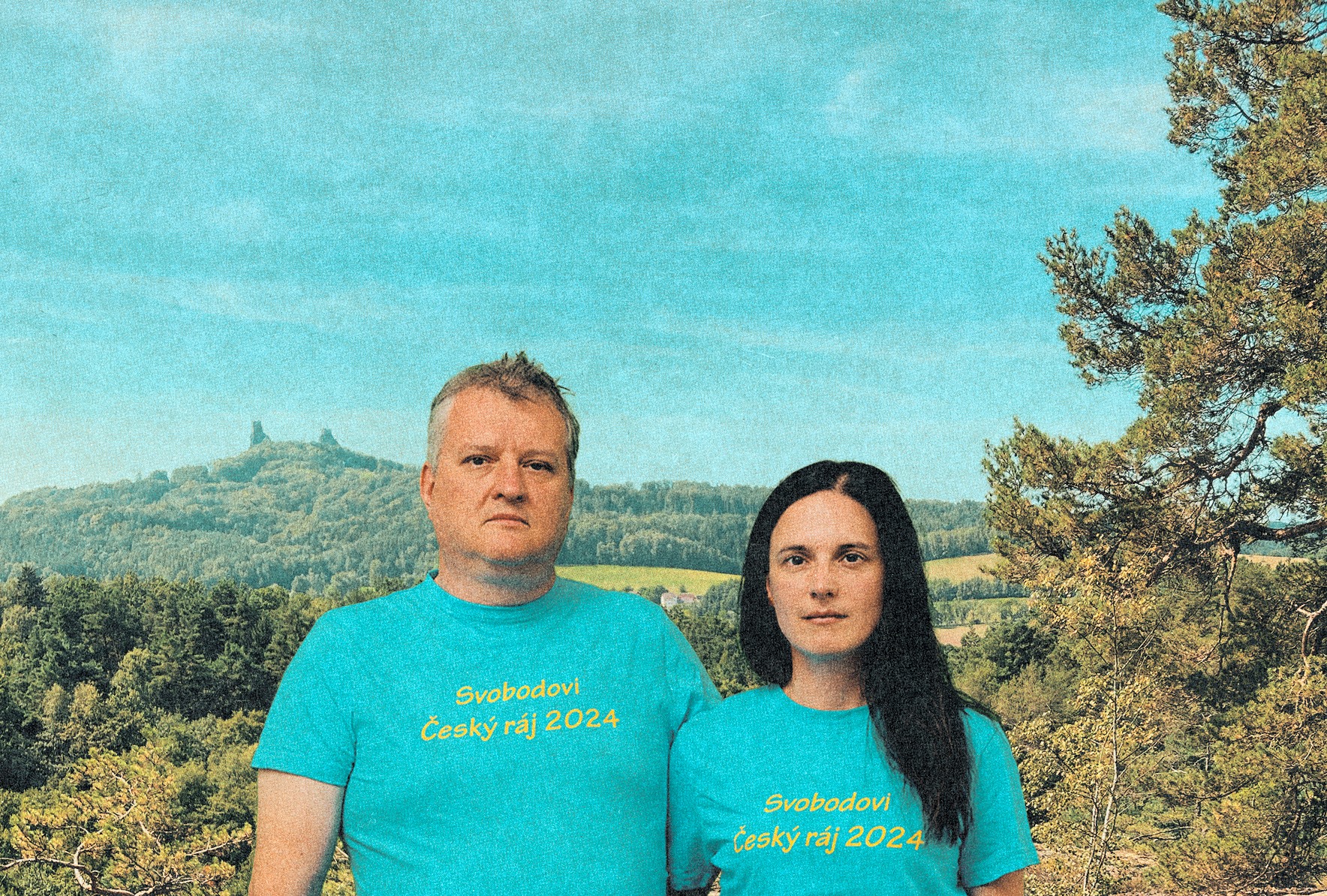
Bohemian vacation
Rising talent Adam Koloman Rybanský made a notable entrance into Czech cinema with his graduation film and feature debut, Somewhere Over the Chemtrails, which was selected for Berlinale’s Panorama section. Following the critical acclaim of his debut, Rybanský is now preparing his sophomore feature, Bohemian Paradise.
The story follows the Svoboda family, who due to lack of finances are forced to forgo their dream vacation by the seaside in favor of a camping trip to the nature reserve called Bohemian Paradise (Český ráj). Milan, nostalgic for his youthful adventures in the Czech countryside, is excited about the trip, while his wife, Týna, is disappointed by the change in plans. As tensions rise, their relationship reaches a breaking point, leading Milan to join a group of tramps by the campfire. A drunken prank results in a massive explosion, creating chaos at the campsite and separating Milan from his family. Lost in the forest, Milan must find his way back, both literally and emotionally, as Týna deals with the aftermath and the strain on their family. Written and directed by Rybanský, the film uses hyperbole and absurdity to stretch the boundaries of realism, turning a lighthearted family comedy into an existential journey.
Much like Somewhere Over the Chemtrails, which resonated globally, Bohemian Paradise intertwines a central relationship storyline with traditional Czech activities, making it locally authentic yet universally appealing. The setting of a disrupted family vacation allows the film to delve deeper into personal and societal issues. The leading roles will be portrayed by Tomáš Jeřábek (Snake Gas, Charlatan) and Magdaléna Borová (Shadow Country, Charlatan). Rybanský’s sophomore feature is produced by Eva and Pavel Vácha of the production company Bratři, which also backed his debut. The Czech producers have partnered with Slovak producer Ján Meliš of Artileria and are seeking additional coproducing partners in Poland and Germany. The development phase is expected to last throughout 2024, with principal photography planned for 2025 and the world premiere anticipated the following year. International sales agent Pluto Film, which handled the rights to Somewhere Over the Chemtrails, is already on board for the project.
Rybanský continues to develop the style he established in his debut, focusing on everyday banality to explore character behavior, societal changes, and atmosphere. He employs absurdity and stereotypes to enhance reality with metaphor and social commentary, capturing the authenticity and specificity of places, subcultures, and family traditions.
International audiences compared Rybanský’s debut to the atmospheric style of Aki Kaurismäki, a tone the director plans to preserve in his sophomore feature. His forthcoming film offers a wryly absurd yet sympathetic portrayal of an ordinary Czech family, reminiscent of Jaroslav Papoušek’s Homolka trilogy, while leaning towards the subtle social satire pioneered by Ruben Östlund.


